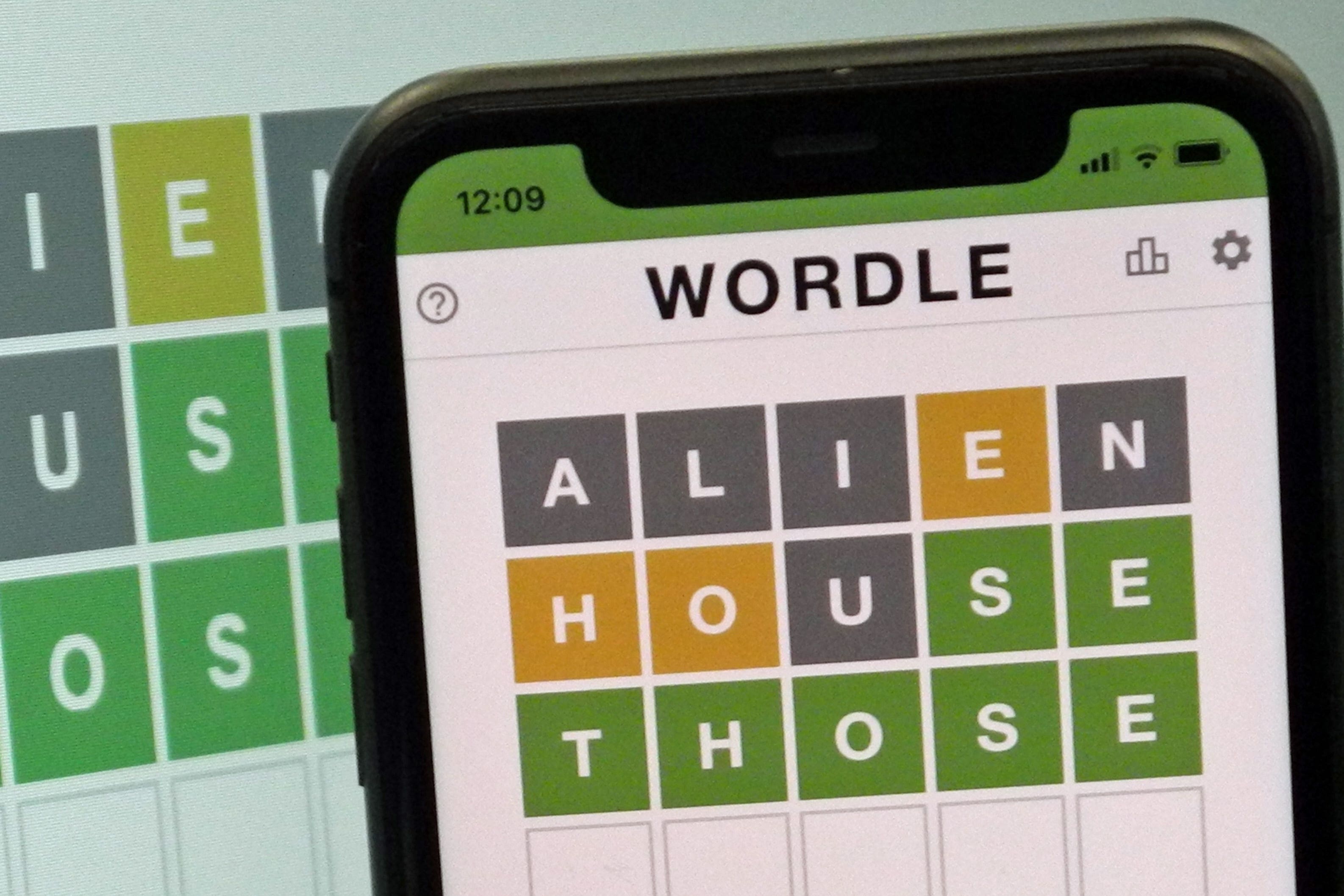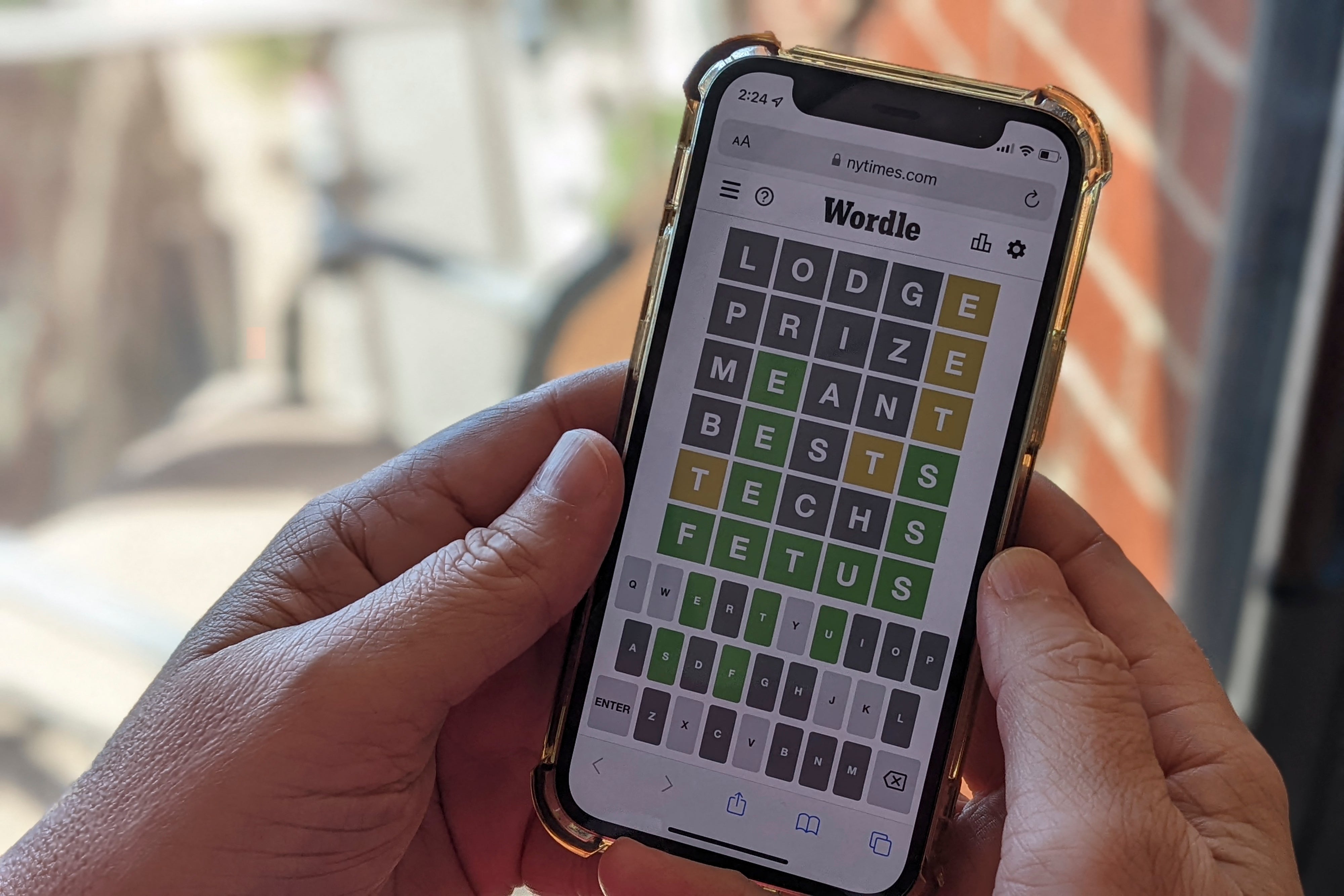The New York Times has had enough of people ripping off Wordle
The game rose in popularity becoming a viral sensation during the pandemic

The New York Times has had enough of Wordle “clones”.
Hundreds of copycats have emerged since Wordle skyrocketed to fame less than three years ago.
The newspaper giant, who purchased the Wordle in 2022, is now arguing that numerous games inspired by the mega-popular game infringe on its copyright protections.
On Friday, the Times is celebrating the 1,000 Wordle puzzle with what they call a “nationwide PARTY” inspired by past Wordle answers.
The Times has filed several Digital Millennium Copyright Act, or DMCA, takedown notices to developers of Wordle-inspired games, which cited infringement on the Times' ownership of the Wordle name, as well as its look and feel — such as the layout and color scheme of green, gray and yellow tiles.
A New York Times Co. spokesperson said the company has no issue with people creating similar word games that do not infringe its Wordle "trademarks or copyrighted gameplay." But the company took action against one user on software developer platform GitHub who created a “Wordle clone” project that included instructions on how to create “a knock-off version” of Wordle, and against others who shared his code.
"As a result, hundreds of websites began popping up with knock-off ‘Wordle’ games that used The Times’ ‘Wordle’ trademark and copyrighted gameplay without authorization or permission,” the spokesperson said.
GitHub gave the user an opportunity to alter the code and remove Wordle references, the spokesperson added, but he declined.

The Times’ DMCA takedown notices were first reported by tech outlet 404 last week. Numerous impacted developers have also taken to social media to share their frustrations. Many said that their games, which range from Wordle-like offerings in other languages to more guessing games, would be taken down as a result.
Vignesh Venkat, a California-based software engineer, said he built his variant of Wordle several years ago, when the game first gained popularity. His game, Hardle, was initially created for a friend’s gender reveal event — where guests encouraged him to put it online for public consumption.
Venkat said he had since forgotten about his game, only playing it sporadically in recent years when reminded by friends.
“I don’t know what they’re really going to get out of this," he said. "I mean, (the Times) probably have like millions of people (playing) their game, and there’s like hundreds or thousands of people playing mine.”
Robert Brauneis, a professor of intellectual property law at George Washington University's Law School, added that a German-language Wordle spinoff that he and his wife used to play, which was once found at “wordle.at,” appeared to have been removed in the last week or two — suggesting that it may have also received a takedown notice.
As of Monday, a message on wordle.at's site, now named “Gridgames,” says the game was voluntarily removed after receiving a “complaint with reference to US trademark law.”
The Times’ spokesperson told The Associated Press Monday that the company first contacted GitHub on Jan. 2 about the infringement issues — noting that hundreds of people have been notified through GritHub since.
In a statement to the AP, a GritHub spokesperson said the platform reviews “all DMCA takedown requests thoroughly” and gives affected users an opportunity to make changes before processing them.

DMCA notices act as a tool for copyright holders to get content that infringes on their intellectual property taken down. Impacted users can still fight to keep what they published up, but that opens up the possibility for costly litigation. As a result, many don't dispute takedowns.
Still, Brauneis said he believes the Times' arguments for Wordle copyright infringement are on “a little bit shaky ground" for several reasons. Rules of a game, for example, are not covered by copyright — and that can include the layout of the game itself, he said.
“If you’re using that six by five grid to implement game rules (of correctly guessing a word) ... I think that grid is not copyrightable,” Brauneis, who specializes in intellectual property law, told the AP. “It is dictated by the rules of the game.”
That brings us to a game's color scheme, which some media companies have successfully copyrighted in the past. Still, Brauneis notes that Wordle's registration with the U.S. Copyright Office just lists its computer code and specific text instructions — but not colors or graphics.
Copyrighted code “doesn’t protect you against anybody who would just write their own code to implement a similar game,” said Brauneis. And while it's possible a filing to expand Wordle's copyright is on the way, the current absence of color or graphics in the registration means potential litigation “is a little more tenuous," he said.
Brauneis added that the trademark to Wordle's name, while enforceable, does not belong in a DMCA notice because copyright law is separate from trademark law.
Software engineer Josh Wardle created the daily puzzle game and made it public back in 2021. In January 2022, he sold Wordle to the Times for a reported seven-figure payday.
The game rose in popularity becoming a viral sensation that inspired other games like “Heardle," the music version of Wordle, where you guess a song name within six listens, and “Queerdle," which uses words associated with the queer community.
Bookmark popover
Removed from bookmarks